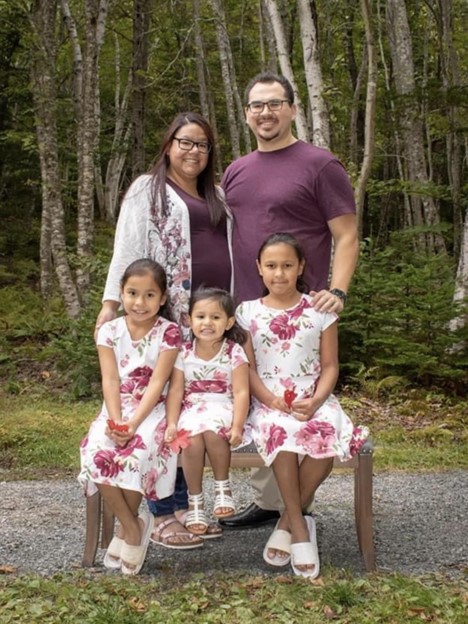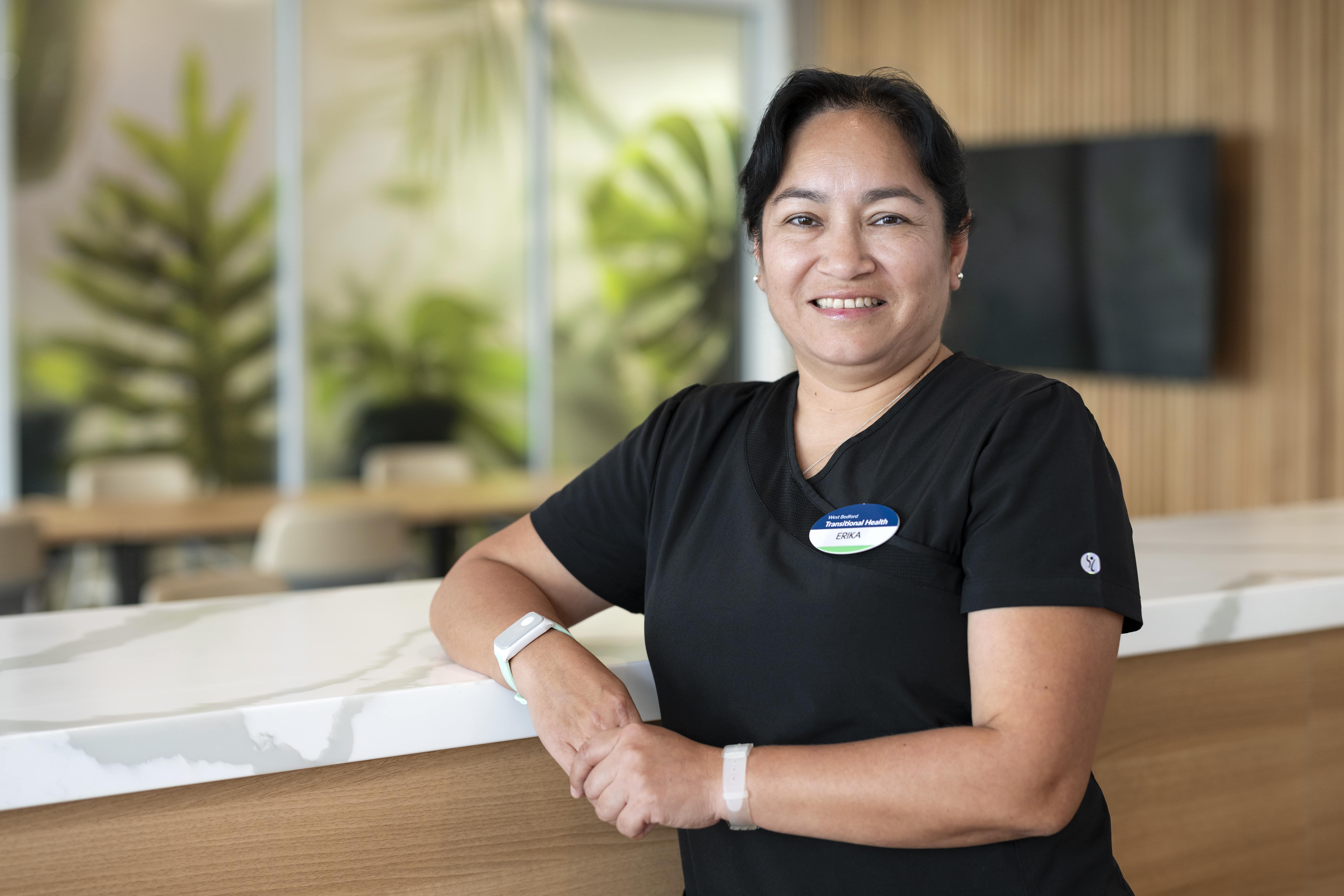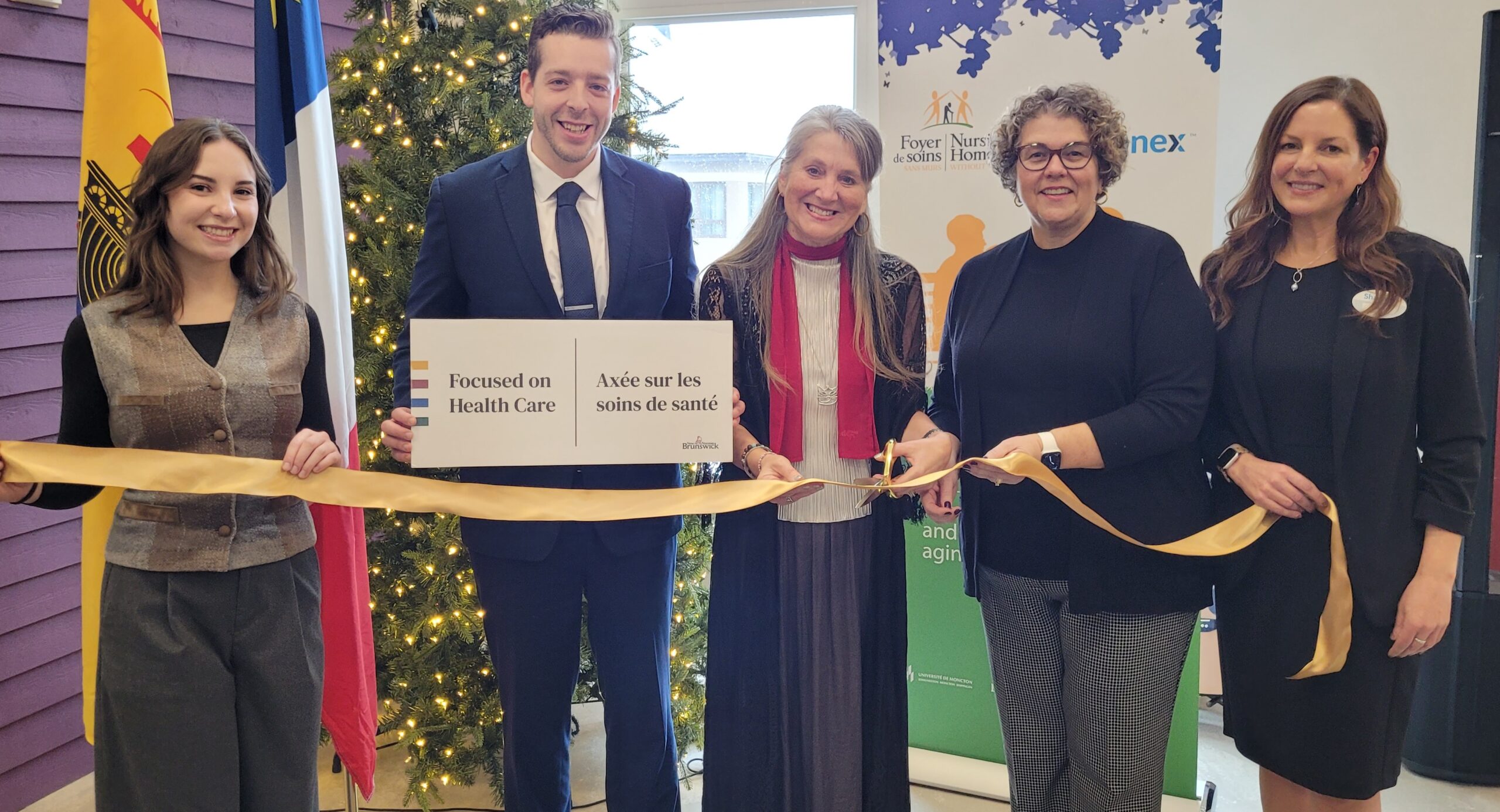
National Indigenous Day Feature
With a passion for his community and a dedication to cultural integration in healthcare, Terrance Bernard, Indigenous Nurse and Kiknu Site Manager, is a positive role model dedicated to improving the quality of life of others.
Terrance’s journey began in the tight-knit Eskasoni First Nation Community in Cape Breton, Nova Scotia. Motivated by his upbringing and cultural heritage, Terrance pursued a career focused on long-term care and community health. His deep connection to Eskasoni and fluency in the Mi’kmaq language facilitated seamless integration of Indigenous culture into nursing practices.
“Indigenous nurses have an opportunity to use their knowledge, both western knowledge that is attained through the nursing curriculum and the traditional knowledge that is learned during one’s lifetime, to help narrow the health disparity gap that exists in the Indigenous population.”
After receiving his Bachelor of Science in Nursing from Cape Breton University, he worked as a Registered Nurse in long-term care before five years of Home and Community Care in Eskasoni.
“I have always loved my job in Home Care, I have always been welcomed into their home, where I get to hear their stories, concerns, engage with them in conversation over a cup of tea,” said Terrance.
Terrance’s journey intertwined with Shannex first at Harbourstone Enhanced Care as Site Lead, before learning of Shannex’s partnership in establishing a long-term care facility in Eskasoni – Kiknu, where he landed the Site Manager position.
As Site Manager at Kiknu, Terrance will oversee daily operations and foster an environment where residents will feel culturally supported and staff members will feel empowered. He is committed to ensuring the community honours Indigenous traditions and that Kiknu Elders receive compassionate care.
Patience and compassion are two qualities Terrance has identified as fundamental in building strong connections with residents. “What better way to respect your elder than to be able to have a conversation with them in their language, whether in just conversation or an opportunity to teach them about a medication or wellness,” said Terrance of his idea of care at Kiknu.
Terrance’s journey from a nursing graduate to site manager showcases resilience and determination. As one of the first male Mi’kmaq nursing students, he carved a path for future Indigenous healthcare professionals. His leadership approach is rooted in his personal experiences, emphasizing inclusivity and empowerment.
“Being a double minority in the nursing program (as a male and Indigenous student) is something that I took pride in because I knew I was being the change and the hope that I wish to see in the world.”
For Terrance, Indigenous Nurses Day is not just a celebration but a reminder of the importance of representation in healthcare. He sees it as an opportunity to inspire the next generation of Indigenous nurses and foster a sense of pride in their heritage.
As we celebrate Terrance and his contributions to Indigenous nursing, we recognize his dedication to improving the quality of life for Indigenous peoples. His leadership at Kiknu represents the integration of Indigenous culture into healthcare, paving the way for a brighter, more inclusive future in nursing.


